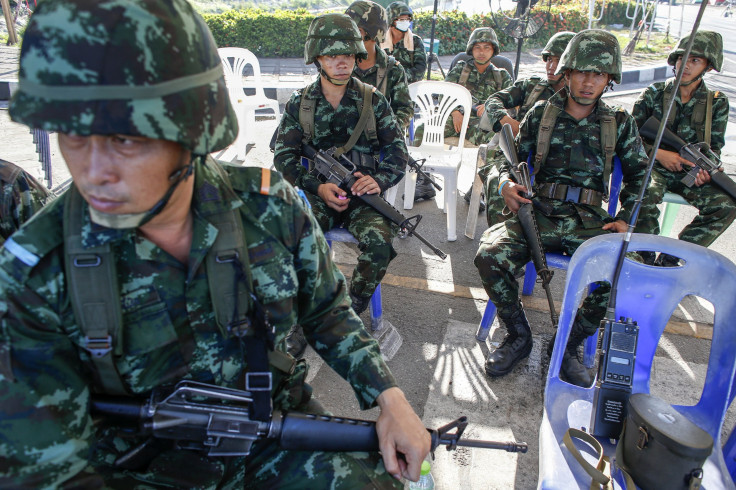Thailand's Army Chief Bans Nation's Leaders, Including Yingluck, From Leaving The Country

Prayuth Chan-ocha, the head of Thailand's army, summoned the nation's political leaders, including former Prime Minister Yingluck Shinawatra as well as leaders of opposition factions, and banned 155 leaders from leaving the country, as the military tightened its hold on the troubled nation.
Yingluck, who arrived at the army facility following Thursday's military coup, met Prayuth separately and was taken to another military location after 30 minutes, while 22 other leaders reportedly met the army chief after his meeting with Yingluck. And, while the nation's leaders are still believed to be under detention since Thursday when the military took over and have been banned from leaving the country, the city of Bangkok looked peaceful Friday after months of political turmoil, clashes and protests, according to Reuters.
Prayuth had reportedly offered three proposals to the Thai leaders during a meeting on Thursday before the military coup was ordered. Prayuth proposed that Yingluck’s entire cabinet step down to make way for an interim government and for both sides to stop protests immediately, a report by Sky News said, citing sources. However, none of the parties backed down from their positions forcing the army chief to order the coup, the report added.
While the U.S. announced that it is reviewing its military assistance and other engagements with the Thai government, Secretary of State John Kerry said, in a statement, that he is “disappointed” at the army's decision to launch the coup, which has also been criticized by other nations such as Australia, Japan and France.
“There is no justification for this military coup. I am concerned by reports that senior political leaders of Thailand’s major parties have been detained and call for their release,” Kerry said, in a statement Thursday, adding: “I urge the restoration of civilian government immediately, a return to democracy, and respect for human rights and fundamental freedoms, such as press freedoms.”
Earlier in May, Yingluck was asked to step down by a constitutional court on charges of misuse of power, along with 22 cabinet ministers. The protests, which had started in November against Yingluck's government turned deadly after her supporters clashed with the opposing factions, leading to several injuries and deaths.
© Copyright IBTimes 2025. All rights reserved.




















